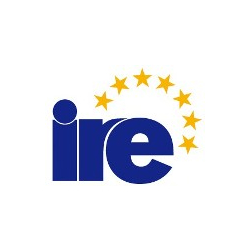Vienna / Salzburg (OTS) – The Salzburg Europe Summit takes place in Salzburg for the 18th time. This year’s international congress has the motto: “Visions for Europe: expectations and realities”. The 18th Europe Summit in Salzburg got off to a great start with a look at the needs and desires of young Europeans. The young people had come from Portugal to Georgia. It was clear to everyone: there can only be one future together.
In her opening speech, Portuguese MEP Lídia Pereira stressed that today’s young people have a stronger European identity than before. Justice between the living and those who are not yet born is fundamental. Author and EU activist Nini Tsiklauri stressed that today’s young people in Georgia are literally ready to die for European values. This is not an exaggeration, but a historical fact. Anastasiia Hatsenko, student and president of the Pan-European Youth of Kiev, took the same line. Even the Ukrainians are ready to die for European freedom and values, “unfortunately at this moment they really have to do it”. Klaudia Shullazi from Albania complained of increased political aggression, but she noticed a desire for modernization and reform in her homeland. Nikolina Martinović from Montenegro also pointed out. As for young people, particular attention needs to be paid to how they actively contribute. Kosovar student Dastid Morina clearly feels like a European and also advertises to his peers from EU countries, who are often unaware of the many privileges they can enjoy.
The first day of the Europe Summit in Salzburg ended with the main European political cause of our day, the war of Russian aggression against Ukraine.
“We have to say it clearly, this is the biggest security crisis in Europe since the end of the Second World War,” said Romanian Secretary of State for Security Simona Cojocaru. Ukrainian Ambassador Vasyl Khymynets called on the European people to stand their ground as the Ukrainian people are doing. Lukas Mandl, a member of the European Parliament, stressed that it was Putin’s Russia’s war against the free world. As for the enlargement of the EU, he stressed that the Western Balkan states have been waiting for concrete steps for two good decades, which has undesirable consequences, such as the influence of non-European powers.
Maka Botchorishvili, chairman of the Georgian parliament’s EU commission, also stressed the importance of a concrete perspective for developments. Setbacks such as the 2016 referendum in the Netherlands would have discouraged some in Georgia, but “a look at progress shows what is possible and that great results are possible if there is a perspective”. As far as domestic infrastructure is concerned, we are on the right track at the moment, explained Austrian Chief of Staff Rudolf Striedinger. Austria is preparing for many eventualities. “Russia provoked this war. Two nations are not at war, one has attacked another, “said Katarina Mathernova, Deputy Director General for EU Enlargement Policy at the European Commission, of course. Historian Franziska Davies spoke of” war against democratic order, “but it was also clearly a neo-colonial, imperial war. It is becoming increasingly clear how little Russia has been understood in the West.
Questions and contacts:
Stefan Haböck, stefan.haboeck@institut-ire.eu Mobile: 0650 53 53 230

